.
When
I commenced this "What Makes A Hero?" in Fantasy series, my initial focus was on essential elements, from the Call through
to Courage and meeting the Challenge.
 |
| Shuri: courageous and very clever |
Last month, when discussing Chivalry, I referenced The Iliad and Achilles, who is the paramount hero not only because of his prowess in battle but also his (at the outset) exemplary honor.
When it comes to the importance of cleverness in a hero's make-up, The Iliad provides two further models – the first is the wily Odysseus, who is called upon whenever military initiatives are at a standstill. The second is the immensely strong Ajax, who while always willing to hurl himself at the enemy, is definitely not the sharpest knife in the heroic drawer.
 |
| Odysseus in the film "Troy" |
Clever or clueless, brain versus brawn – folklore and legend are rich with such characters: David pitted against Goliath, Thor and Loki on their many adventures, together with a whole pantheon of trickster demigods and/or heroes such as Coyote, Maui, and Robin Hood.
 |
| Maui, from the film "Moana" |
The question, in considering what makes a Fantasy hero, is if cleverness is a necessary part of the heroic makeup, or whether it can be sufficient to be physically strong and unquestionably brave, like Ajax, but not particularly bright.
The Clever:
The answer may be that it depends on circumstances. Mara of the Acoma, in Janny Wurts and Raymond E Feist's Daughter of the Empire, exemplifies not only cleverness but guile, and an ability to think outside the square. Yet when Mara inherits leadership of her House, its armies are decimated and largely undefended. To survive the Empire's vicious politics and deadly feuds, she has to out-think and outplay everyone else.
 |
Kaz Brekker, in Leigh Bardugo's Six of Crows, is an outright trickster hero, relying on his wits and cleverness to not only survive but thrive in Ketterdam's underworld and the deadly politics with neighbouring realms. His sidekick, Jesper Fahey, however, while not clueless as such, certainly "leads with his chin" in many situations.
 |
Mercy Thompson, in Patricia Briggs' series of the same name, is the only shape-shifting coyote in a town dominated by a werewolf pack, but which includes many other paranormal beings as well. In the face of the wolves' superior strength and ferocity, as well as vampire glamors and fey magicks, Mercy must deploy the trickster coyote's wit and savvy to hold her own, stay alive, and protect those she loves.
 |
Other notable trickster heroes include the mage, Quickben, in Steven Erikson's Malazan series, the god Sieh in NK Jemisin's Inheritance trilogy, and Canny Mochrie in Mortal Fire, by Elizabeth Knox. Yarvi, in Joe Abercrombie's Half A King, must use Loki-like cunning and trickery to survive dispossession and exile – although as I've noted before in this series, I'm inclined to regard Yarvi as an outright villain, rather than an antihero. (He's certainly not a hero.)
 |
Cunning, wit, and guile, therefore, are vital in tight corners and when the odds are stacked against the protagonist.
The cleverness required of a hero may not always be that of the trickster, but rather of the strategist. In terms of circumstances, this more often occurs when the danger is grave but the odds appear more even (at least on the surface.)
 |
Mara of the Acoma is one of the few heroes who demonstrates both forms of acumen: she subverts where required in order to survive, but she is also a strategic thinker and leader. While always present, the strategic aspect becomes more pronounced in the trilogy's second and third books (Servant of the Empire and Mistress of the Empire, respectively.)
 |
Dalinar Kholin, from Brandon Sanderson's The Way of Kings (and Stormlight Archive series) is an exemplary strategist, as is Count Brass in The Chronicles of the Runestaff by Michael Moorcock. Alessan, in Guy Gavriel Kay's Tigana is another hero prepared to take the field, but his most significant contribution is his ability to outwit and out-game his enemies, pitting them against each other.
 |
Malian, in my Wall of Night series is a similar character: she has considerable magical power and is prepared to use it, but her ability to keep a cool head, think strategically, and play a long game, are also among her superpowers.
 |
But Are There Clueless Heroes?
I had to think long and hard in order to identify a Fantasy hero cast in the same model as Ajax. Although not a main character (but still part of the "happy few, the band of brothers") I suspect Fezzik in The Princess Bride probably qualifies. :-)
 |
My best example, though, is Ser Duncan the Tall in George RR Martin's A Knight of the Seven Kingdoms, "Dunk the Lunk" as he terms himself, is extremely naive and also, arguably, not particularly bright – but always very happy to throw himself into the thick of a fight. In Ser Duncan's case he has Egg (Aegon) to take care of most of the heavy thinking, so together they really are something of an 'Ajax and Odysseus' pair.
 |
 |
Overall, though, the genre does not have many clueless heroes. The focus is more on characters that are reasonably intelligent, or even clever, but – like Jesper Fahey – tend to "lead with their chins." In other words, they tend to be driven by their emotions and to lead with them, too, rather than heeding the cooler counsel of their heads. Unsurprisingly, they are often hot-headed and reckless as well.
 |
I've always felt that Harry Potter falls into this category, especially in The Order of the Phoenix, but also in incidents such as the Mirror of Erised in Harry Potter and the Philosopher's Stone. Rand Al Thor, in the Wheel of Time series, is frequently driven by his emotions, as is FitzChivalry in Robin Hobbs' Assassin trilogy. Both can be reckless as well, sometimes to the extent of foolhardiness.
 |
Sansa Stark, in the A Song of Ice and Fire series is another protagonist whose extreme, and wilful, naivete makes her appear clueless in the early books – although by the end of A Feast for Crows (ASOIAF #4) the reader is beginning to realize that's not the case. Just as importantly, so is Sansa...
 |
Conclusion:
The reason for this, I suspect, is because Fantasy heroes must often solve complex magical and strategic problems, as well as leading forlorn hopes and glorious charges, Pelennor Fields-style. There is definitely a place for the Ajaxes and Sir Duncan the Tall's when glorious charges, forlorn hopes, and sheer brawn are required. More often than not, though, the Fantasy hero must find a clever way to counterbalance considerable odds, or execute strategy on the level of a Mara or an Alessan in order to save a community, a realm, or a world.
 |
| Glorious Charge, Pelennor Fields style |
Very often, too, part of the hero's journey for the reckless, hotheaded, and emotionally driven is to temper that aspect of themselves in order to win through.
The weight of evidence, therefore, suggests that some degree of smarts is necessary to a Fantasy hero – and those that don't have it, like George RR Martin's Sir Duncan, had best find themselves an Egg. :-)
 |
| Sir Duncan & Egg |
© Helen Lowe
~*~
Previous Posts:
January: Looking Forward To An Heroic 2022
March: What Makes A Hero -- and The Call
April: What Makes A Hero #2: Circumstance
May: What Makes A Hero #3: Commitment
June: What Makes A Hero #4: Courage
July: What Makes A Hero #5: Challenge
August: What Makes A Hero #6: Charisma
September: What Makes A Hero #7: Chivalry
~*~
About The Author:
Helen Lowe is an award-winning novelist, poet, and lover of story. With four books published to date, she is currently completing the final instalment in The Wall Of Night series.
Helen posts regularly on her “…on Anything, Really” blog, monthly on the Supernatural Underground, and tweets @helenl0we.



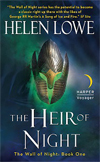
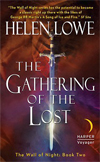
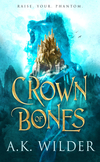
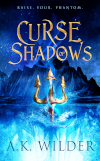
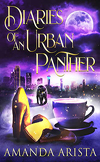
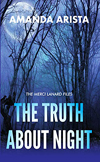

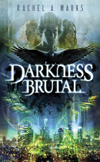
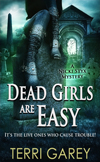
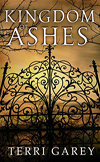
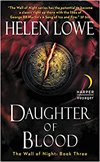
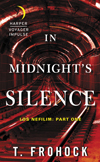
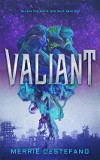
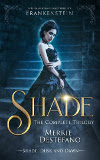

No comments:
Post a Comment